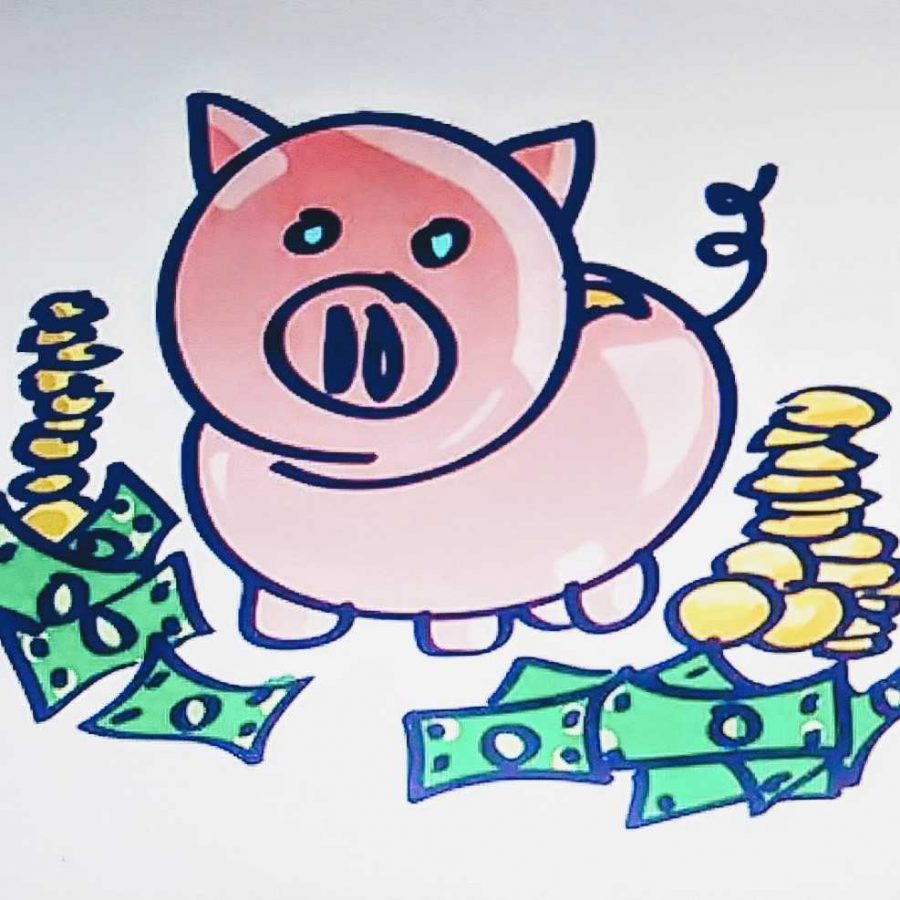What we Don’t Think About
Personal Finances
May 8, 2019
Personal finance… it’s not typically something high school students consider. At a recent GLINC club meeting, however, there was a presentation on managing personal finance, understanding taxes, and building savings. Most everyone in attendance learned they knew absolutely nothing about something so important.
Personal finances are vital and students need to know more about them prior to entering adulthood — before they are forced to learn about them the hard way. Often people make mistakes that leave them deep in debt — a debt nearly impossible to get out of.
Fortunately, here at Cartersville High there is a Financial Literacy class, taught by Mrs. Spradley. There is also a Marketing Management course, and seniors in Economics have benefited from lectures by an Edward Jones professional. He has presented on multiple Fridays, informing seniors about real-world money management.
Mrs. Tierce has been excited about the success and interest in the Edward Jones presentations and looks forward to incorporating additional financial literacy into senior Economic classes in the future.
Besides the resources listed above, here are some additional tips as students begin navigating personal finances:
- Large, well-known (and advertised) banks are usually not the best option. They will often charge the customer for unnecessary features that smaller banks would not.
- Keep a calendar to remind yourself of due dates.
- Pay attention to interest rates.
- Remember the 50/30/20 rule – a good rule of thumb to follow when it comes to managing money.
- 50% of your income should be for your basic needs in life (food, clothing, rent, bills, etc.)
- 30% is for your wants — things that you don’t need, but would like (i.e., Netflix)
- 20% is for savings – for funds after your retire, and in case of emergencies
- With regard to taxes…
- a CPA (who helps with taxes) is optional — you can calculate your own, but if they are too complex, a CPA is good to have on hand.
- Tax brackets — the percentage of taxes you owe, based upon annual income, whether you are married (filing status), and if you have children, etc.
- The more income you make, the higher you tax bracket will be.
- With regard to debit cards
- Pros
- Money that comes straight out of your bank
- Can only spend what you have, so you can’t go deep into debt.
- No need to carry cash
- Can load additional money into your account at an ATM
- Pros
-
- Cons
- Money comes straight out of your bank account
- It can be difficult to dispute charges and get your money back after a purchase.
- It does not improve your credit score.
- Doesn’t offer rewards like credit cards do
- Cons
- With regard to credit cards
- Pros –
- Can help build your credit score
- Can come with rewards or “free money” to encourage use
- Offers free insurance for things like car rentals and traveling
- Allows for more flexible spending if paid back on time Credit card Cons –
- Pros –
-
- Cons —
- Borrowed money can have high interest rates
- Can wind up in deep debt
- Interest rates increase amount of money owed
- Rewards only giveback a small percentage of money in purchases, so must be careful with spending.
- Just like a credit card can help your credit score, it can hut it as well
- Cons —
There are so many other topics that could be covered, however these are the basics that most high school students should find beneficial.



